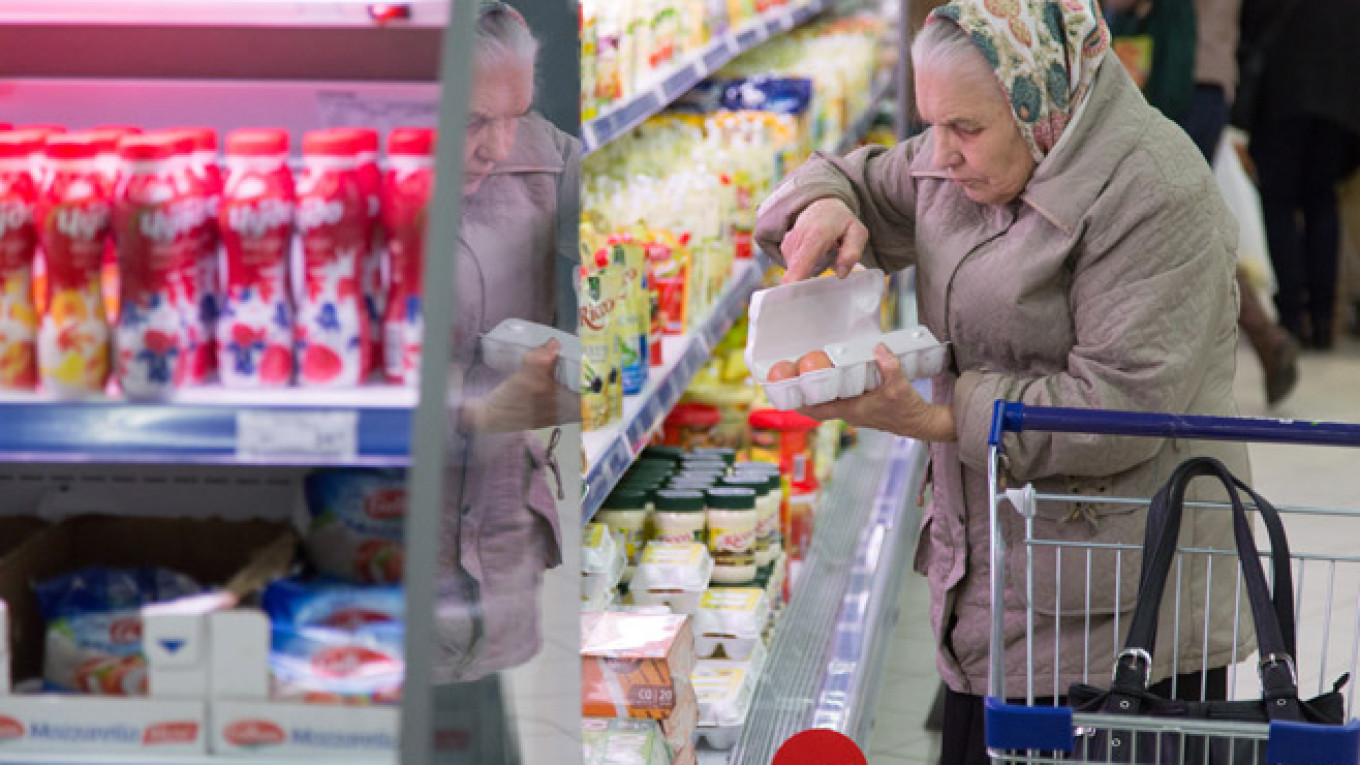The Finance Ministry wants to free the billions of dollars locked up in Russia's pension funds for investment in the economy from Jan. 1, a move that could spell either social collapse or effective economic stimulus depending on where the money goes, analysts said.
In a declaration of aims published on its website Tuesday, the ministry said the economy demands a source of financing for "long-term investment projects … [and] in the current difficult conditions for investment, this source ought to be funds from the pension system."
State pension funds in Russia — where the greater part of the country's 2.5 trillion ruble ($71 billion) pensions pot is stored — have long been stoppered by laws that severely restrict their investment activities. But over the past year the wheels of reform have been turning, the Finance Ministry said, and the floodgates may be opened on Jan. 1, 2015.
The influx could relieve an economy on the edge of recession and with restricted access to overseas sources of finance in the aftermath of Russia's annexation of the Crimean peninsula from Ukraine in March.
According to Maxim Osadchy, head of analysis at Corporate Finance Bank, the funds would likely be destined for such massive and financially risky government projects as the 2014 Sochi Olympics. If this is the case, such a decision is "fraught with potential social catastrophe," Osadchy said.
Investing pension savings in itself is a good idea — amid capital outflow and decreased access to financing abroad, these funds have become "in essence the single source for long-term investments," Osadchy said. But the money should be safeguarded in vehicles with the highest possible investment rating, such as government securities or bank bonds. Government mega-projects, on the other hand, are highly dubious from an investment perspective.
"If anything bad happens to pension money, even a 'Russian Maidan' is possible," Osadchy said, referencing the protest movement in Ukraine that ousted Viktor Yanukovych from the presidency in February.
On the other hand, if the money flows into Russian stocks rather than into mega-projects, it could provide boost the economy and help bring the Moscow Exchange to the level of market abroad.
The Moscow Exchange already has market infrastructure to rival its global peers, Alexander Afanasiev, the exchange's chief told the Moscow Times on Tuesday, and "these additional billions of dollars [from pension funds] will add depth and liquidity to our market and make us less exposed to the whims of international fund flows."
Pension funds have long been key institutional investors in the U.S. and Europe. Martin Graham, chairman of Oracle Capital Group and board member at the Moscow Exchange, said an increase in Russian funds' investment presence would both ensure that the stock market appreciates in the long term and, by providing a deeper pool of available capital, encourage companies to conduct their initial and secondary public offerings in Russia.
Pension fund activity on the market would also send a powerful message to foreign players that are shy of investing in Russia while Russian investors put their own funds in assets abroad. "It is really important for international investors to see that domestic investors are actually investing in domestic assets, it would be seen as a very positive signal," Graham said.
Contact the author at d.damora@imedia.ru
A Message from The Moscow Times:
Dear readers,
We are facing unprecedented challenges. Russia's Prosecutor General's Office has designated The Moscow Times as an "undesirable" organization, criminalizing our work and putting our staff at risk of prosecution. This follows our earlier unjust labeling as a "foreign agent."
These actions are direct attempts to silence independent journalism in Russia. The authorities claim our work "discredits the decisions of the Russian leadership." We see things differently: we strive to provide accurate, unbiased reporting on Russia.
We, the journalists of The Moscow Times, refuse to be silenced. But to continue our work, we need your help.
Your support, no matter how small, makes a world of difference. If you can, please support us monthly starting from just $2. It's quick to set up, and every contribution makes a significant impact.
By supporting The Moscow Times, you're defending open, independent journalism in the face of repression. Thank you for standing with us.
Remind me later.


